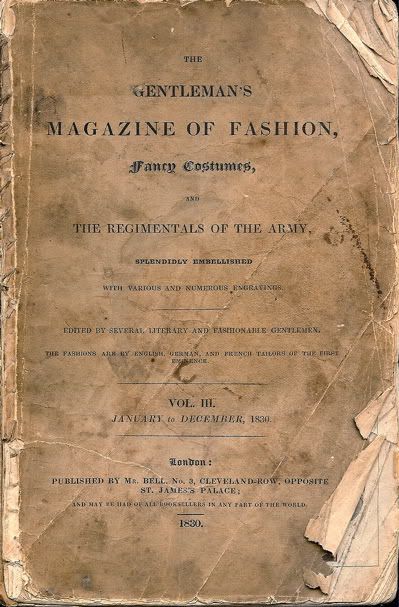
I have decided to start with an example of evening dress from March, 1830:

The illustration is almost certainly hand painted. The accompanying text is absolutely fascinating:

It is quite extraordinary to think that dandies of this period would go to the opera dressed in a violet coloured overcoat lined with sable, and a burgundy coloured dress coat I have always noticed that names for colours are highly mutable with time. In this case, burgundy is decribed as flamme d'enfer. Notice that the waistcoat is cut to show 1/2" below the dress coat, as was correct in this period. The spelling of lapel with two ps is also charming.
I cannot say what the significance is of the uneven number of show buttons on the dress coat. However, the looseness of the overcoat was intended to avoid disturbing the dress clothes underneath. The "rolling collar" on the waistcoat likely means it has a shawl collar (ie a roll collar).
I will update this thread from time to time, so watch out! There are some real gems.
http://www.cutterandtailor.com/forum


